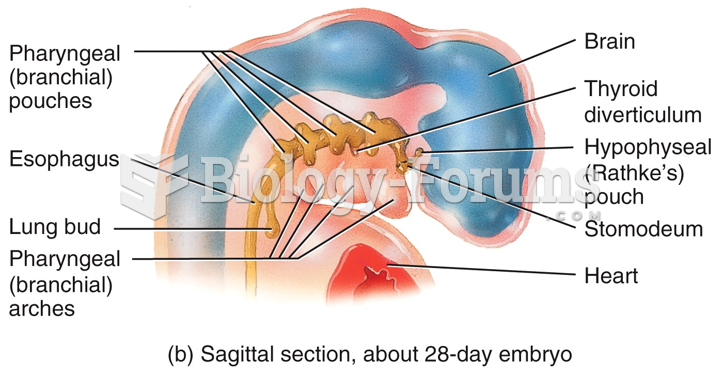|
|
|
In most climates, 8 to 10 glasses of water per day is recommended for adults. The best indicator for adequate fluid intake is frequent, clear urination.
Though newer “smart” infusion pumps are increasingly becoming more sophisticated, they cannot prevent all programming and administration errors. Health care professionals that use smart infusion pumps must still practice the rights of medication administration and have other professionals double-check all high-risk infusions.
In the ancient and medieval periods, dysentery killed about ? of all babies before they reach 12 months of age. The disease was transferred through contaminated drinking water, because there was no way to adequately dispose of sewage, which contaminated the water.
More than 34,000 trademarked medication names and more than 10,000 generic medication names are in use in the United States.
It is difficult to obtain enough calcium without consuming milk or other dairy foods.
 Mutualisms, such as those that occur among plants and pollinators, generally involve large numbers o
Mutualisms, such as those that occur among plants and pollinators, generally involve large numbers o
 Timing of teratogens. Vulnerability to teratogens is greatest in the embryonic period. Source: Moore
Timing of teratogens. Vulnerability to teratogens is greatest in the embryonic period. Source: Moore





